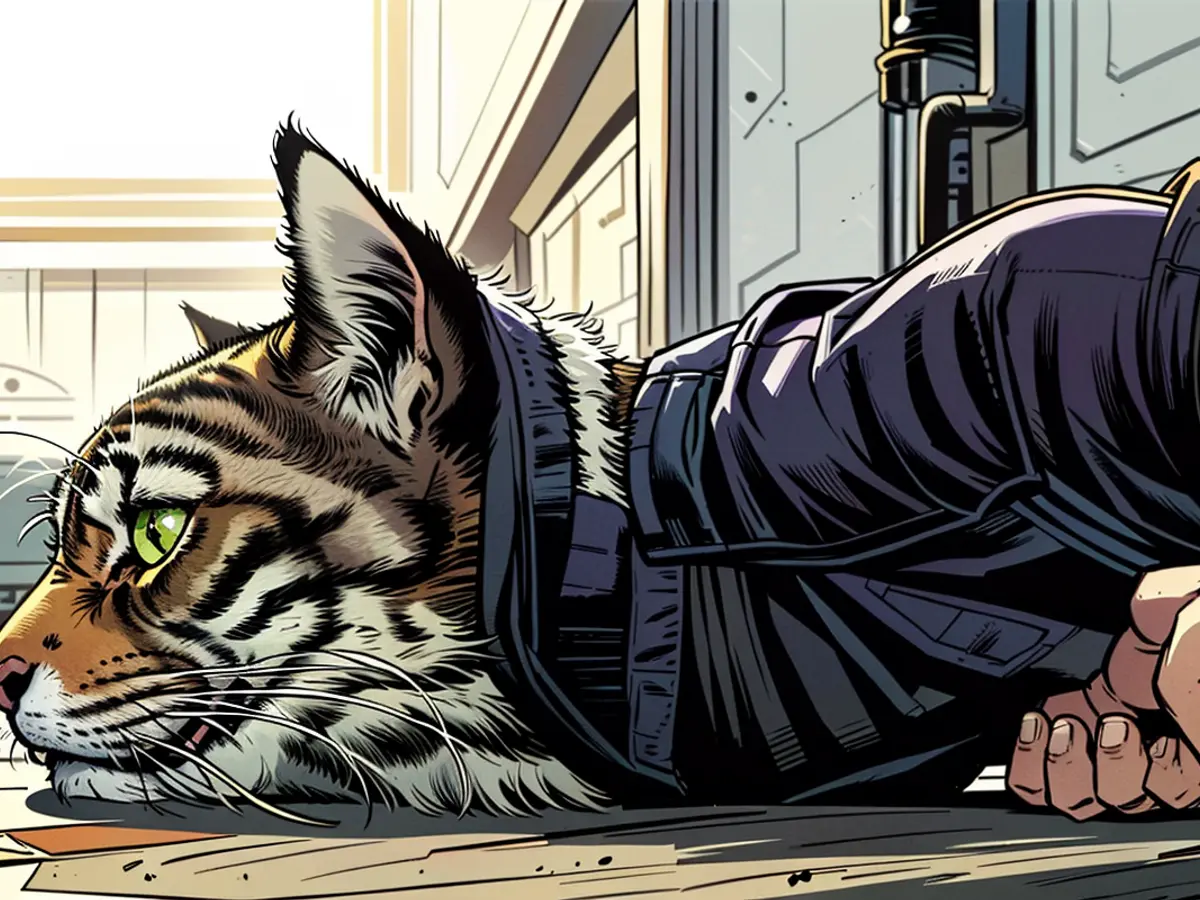- Cats mourn their furry friends <unk> even dogs
Cats are generally considered more independent than dogs, sometimes even aloof and fickle in their affection. However, this perceived lack of empathy or indifference may be unfairly attributed to cats. A study by cognitive psychologist Jennifer Vonk of Oakland University suggests that cats grieve when another pet in their household dies, even if it's the family dog.
Jennifer Vonk was initially skeptical of these stories, as she hadn't observed such behavior in her own cats. So, she decided to investigate the phenomenon. Vonk and her colleague surveyed 412 cat owners and included 452 indoor cats in their study whose households had experienced the death of another pet.
The study is based on owner reports of changes in their cats' behavior after the death of a furry companion. Some cats slept poorly, refused food, or made crying noises. Others sought more contact with their owners or neglected their favorite games. Other cats hid more, spent time alone, or searched for their lost companion, according to the researchers.
However, Vonk acknowledged that the results should be interpreted with caution. The stronger the owners described their bond with their cats, the more likely they were to report that the animals sought their attention or grieved. It's possible that owners were projecting their own grief onto the remaining cat.
Grief in Cats
But: Behavior that can be interpreted as grief has also been observed in apes. And dogs seem to mourn their deceased counterparts as well. A study by a research team at the University of Bern suggests this. The animals behaved similarly to cats: they played less, ate less, and whined more when one of their animal friends died.
"If we're grieving, we tend to sleep poorly, eat less, and definitely be less playful," Jennifer Vonk told "Times". The study suggests that cats were more affected the longer they lived with the deceased pet, while witnessing the death and the number of pets in the household had no impact.
Misjudging Cats
"Unlike dogs, we tend to think of cats as aloof and unsocial," Jennifer Vonk told "Times". However, she noted that cats in the wild tend to form groups and establish hierarchies. "I think we've misjudged them."
So, cats may not be as indifferent as some people think. A 2019 experiment also suggests that cats form bonds with their owners. The researchers assumed that owners induce well-being in their cats. They tested young and adult cats, letting them spend two minutes with their owners, then leaving the room for two minutes, and finally spending another two minutes with their cats. To measure the relationship between the animals and their owners, the researchers measured the cats' stress responses. The result: 64.3% of the test subjects were attached to their owners.
The study found that some grieving cats slept poorly, refused food, or made crying noises, while others sought more contact with their owners or showed signs of neglecting their favorite games. (Grief in Cats)
Jennifer Vonk mentioned that cats in the wild form groups and establish hierarchies, suggesting that we may have misjudged their social behavior. (Misjudging Cats)






